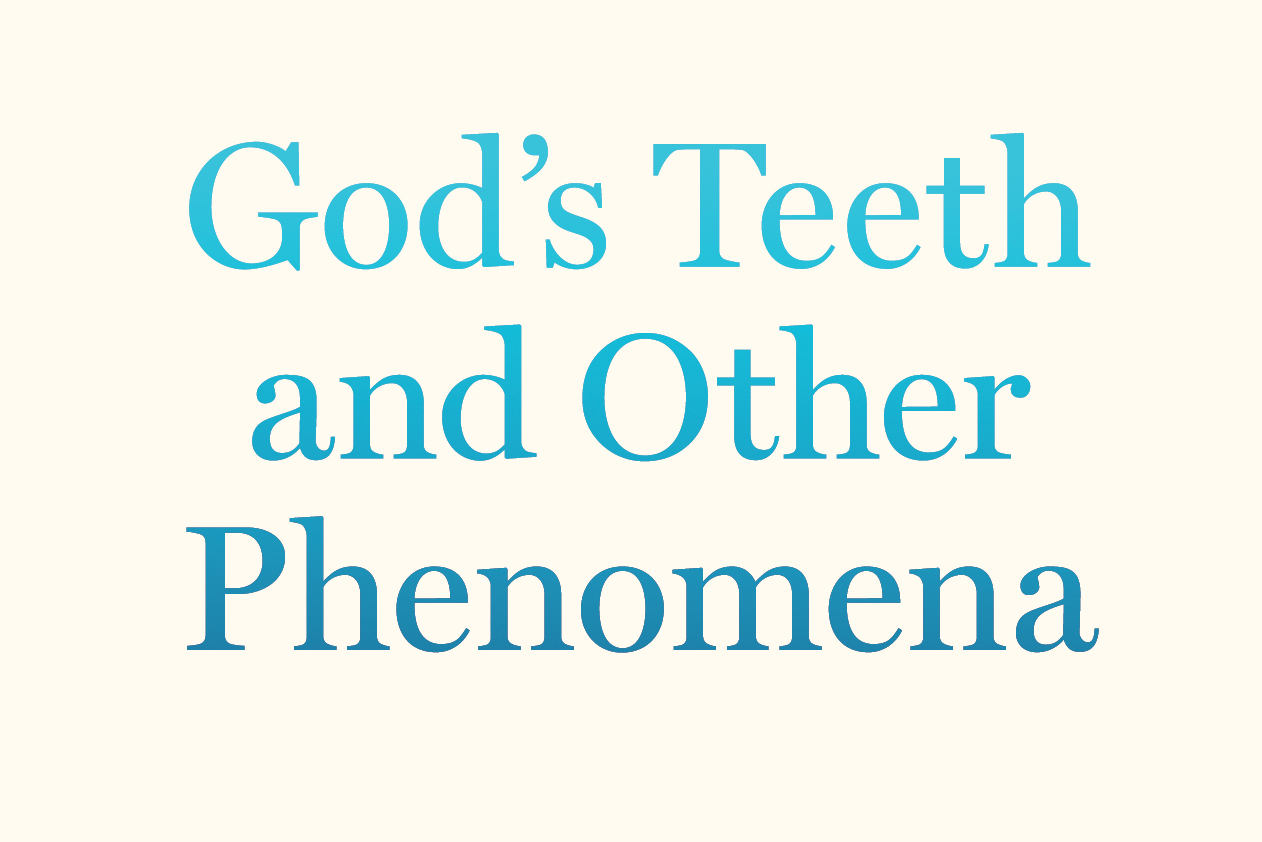One of the most fascinating aspects of James Kelman’s development as a novelist has been the increasing range of his use of first-person narration, from a child narrator in Keiron Smith, Boy to a woman in Mo said she was quirky. His most recent novel, Dirt Road, saw him return to the America of You Have to be Careful in the Land of the Free, but, rather than the existential loners that populated his early novels, we find instead a beautiful examination of a father-son relationship. With his latest novel, God’s Teeth and Other Phenomenon, published by an American small press, he breaks new ground again in what seems, on the face of it, his most autobiographical novel yet, featuring a writer as the central character.
The novel tells the story of Jack Proctor, a Sottish writer largely known (if at all) for winning the ‘Banker’s Prize’ a number of years ago (“Fifteen years ago I was awarded the damn prize and the buggers were still picking over the bones”), who is invited to a residency at the Orwellian sounding ‘House of Art and Aesthetics.’ The novel works on two levels: on the one hand it offers a satirical account of the writer’s life, while on the other it proposes a serious argument for writing as an art form. “I was at the computer trying to finish a sentence,” it begins, establishing from the outset that this is a novel about the act of writing, as Proctor will frequently remind the aspiring writers he works with:
“The writing is the thing.”
As he also makes clear, it is not a financially rewarding profession:
“People dont buy your books and ye canny fucking force them man imagine it! waiting outside the bookshop with yer Winchester rifle: buy the bastard’s book or I’ll blow yer fucking heid aff!”
Proctor’s need to write (“I’m one of those writers who wrote all the time”) leads to his first difficulty with the residency before he has even arrived as he cannot face the thought of a week in a bed and breakfast:
“Stuck in a solitary room for six weeks. God’s teeth!”
Instead they offer him an isolated cabin – ideal, apart from the fact he has no transport for the first few days. When a vehicle does arrive, it seems more appropriate for the inner city than the country roads Jack must navigate:
“It was just so wee. Pitiably so. In an emergency stop ye would be liable to castrate yerself.”
This is only the first of a series of difficulties Jack has to manage: “Strange eventualities take place on reading tours,” as he says. Sessions are cancelled or cut short with no notice – or sometimes without Jack having even been told about them in the first place. When only a small audience turns up for an evening reading, the organiser comments, “It’s a pity you cancelled the school session…We might have built up the figures.” Far from cancelling it, Jack has no knowledge of it in the first place. The readings he performs are not treated any better – from an announcement he will read from ‘the book’ (That is, his ‘Banker’s Prize’ winning novel) when he does not even have a copy, to publicity which states he writes in ‘Lallans’ and calls him ‘Jock’:
“’Jock’ but man it was totally racist… Lallans, what the hell is Lallans?… Definitely libellous shite man.”
This is partly, as Jack thinks to himself at one point, “being an ordinary human being in a society structured on inhumanity,” but it is also, more ironically lack of understanding of Jack as a writer from those who proclaim to love literature.:
“People expect ye to tell jokes and regale them with previous-life anecdotes.”
Jack’s performances are carefully planned and rehearsed, as well as fluid and responsive. He realises at one point that one of the arts officers “presumed I was saying the same thing to each crowd of folk on each occasion.” To the House of Art and Aesthetics, Jack is simply a commodity:
“She appeared unable to grasp I was a human being.”
If this were Kelman’s first novel it might feel like special pleading for writers, but the theme of treating others as human beings has long been present in his work. Take, for example, the story ‘No longer the warehouseman’ from Not Not While the Giro where the narrator wonders about having to have his tea break standing up: “Surely there are chairs I said to the foreman.” Here, we also have the benefit, in the form of his talks with different groups, of his thoughts on writing, as he asks us to “think in terms of more physical art forms.”
“Artists fight to regain freedom through the base materials which in my case is language.”
These suggest the novel is more than comedy. While the satirical element might be a plea to take writers more seriously, the novel as a whole asks us to take writing, and art in general, more seriously. Kelman’s work has always been both funny and serious, and this might just be both his funniest and most serious novel yet.







